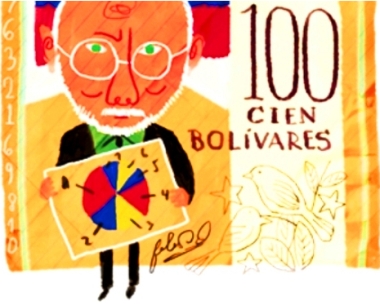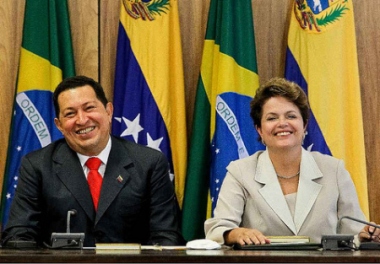So, Maduro came back with a bunch of economic decisions purportedly signed by Hugo Chavez personally, and the questionable Vice-President suggested that there would be changes in the gold “structure”. Rumors began circulating that the Government would propose a “new” foreign exchange mechanism using its gold production, but it sounded impractical to me, the main reason being that Venezuela’s gold production currently is below US$ 500 million a year, indicating any novel mechanism would have little impact.
But instead, the Minister of Oil and Energy and President of PDVSA announced the new measures and so far, they are not that impressive if no others are coming:
-The Government will change the windfall profit tax, such that the trigger point is no longer US$ 70 per barrel, but US$ 80 per barrel. What this means is that PDVSA will be able to keep more of the foreign currency it gets for selling the oil abroad. Before when the trigger point reached US$ 70 per barrel, the extra foreign currency would go to Chavez’ petty cash fund Fonden, from which the money was spent with no transparency whatsoever. Now, this is increased such that if oil prices stay the same, Fonden will receive US$ 2.9 billion less in 2013, of which US$ 2.4 billion will end up in the Venezuelan Central Bank and the Treasury will receive an additional US$ 383 million. Of these US$ 2.4 billion will have to be sold to the Central Bank.
Thus, this is nothing but shifting funds from one pocket to the other, giving PDVSA more (needs less financing now), strengthening the international reserves and the flow via CADIVI. Given PDVSA’s and the Central Bank’s needs, this is not that much of a measure. in terms of size.
-Ramirez also said that they had notified the beneficiaries of Petrocaribe’s largesse, whereby Chavez gives oil to certain countries in Latin America and the Caribbean with grace periods, only 50% upfront, and twenty years to pay the balance at a very low interest rate, that the terms will be changed.
But Ramirez said little about which terms will be changed. Last time there was an emergency, the Government only changed how much money upfront had to be paid by 10%. Since we have not heard an outcry from those receiving the almost free oil, it is hard to imagine that the terms are being changed significantly. This will improve a little the flow of dollars to the Central Bank.
-PDVSA will now be in control of the country’s gold via la Corporacion Venezolana de Mineria (CVM) which will exploit all of the mining of gold in the country. This is another change of many in gold legislation, restructuring and the like in the last 14 years. As Damian Prat notes in his book (previous post) the Chavez Government has not carried out ANY new projects in Guayana that it started to completion, in the last fourteen years. In fact, during Chavez’ years, gold production has fallen from about 10 Tons a year to somewhere between 3 and 4 Tons. Even if they recovered production to the old levels (which will take time), it would be worth about US$ 600 million more at best.
-Ramirez also announced that PDVSA would not issue new dollar bonds because it would be “too expensive”. Funny, he issued bonds up to roughly 300 basis points (3%) above what we would have to pay today, but now it would be expensive. This would be good news, if PDVSA would not acquire more dollar debt. However, Ramirez has denied new bonds were coming before and they were announced only a few days afterwards. The market clearly did not believe him, as investors pushed the prices of bonds down yesterday when the announcement was made.
Nothing about devaluation, paying CADIVI debt, new foreign exchange mechanisms. Maybe they are coming. But the measures announced so far are of little significance.
Stay tuned…











